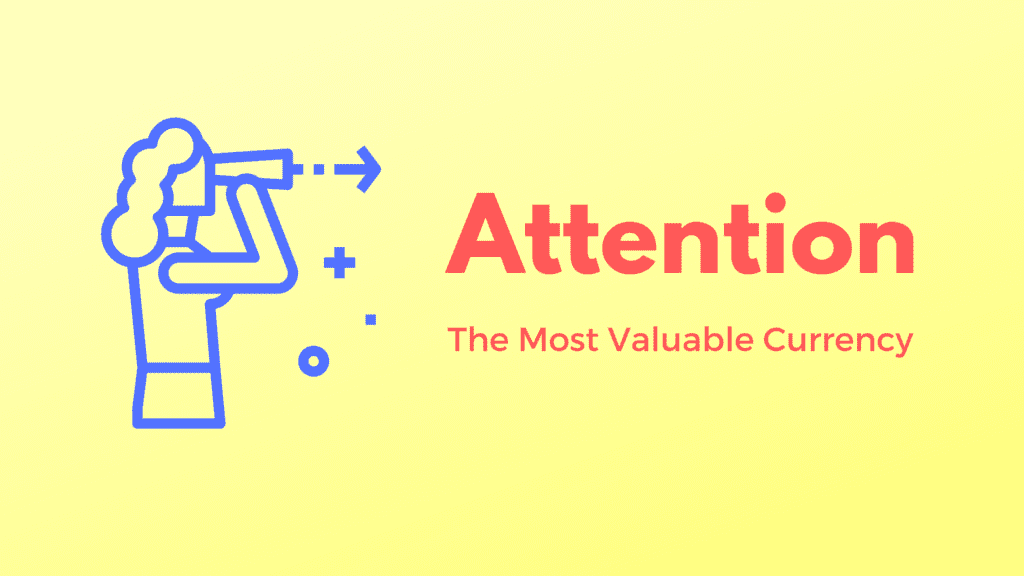In this age where technology is consuming huge chunks of your days, you need to set some time aside to slow down and do nothing. And no! It’s not a waste of your valuable time.
Although technology has eased many aspects of our lives, modern life has become severely complicated for our evolution-based brains.
We may be getting food delivered to our doorsteps and classes delivered to our bedrooms, but at the same time, it’s wreaking chaos on our mental, psychological and emotional health.
Evidently, we’re not using technology in the way brilliant inventors designed it to be used—to ease our workload and save us time for what’s most meaningful. Instead, most of us have submitted our entire selves to modern technology and its demands, leaving little to no time for ourselves to just be.
This post isn’t about hating on technology. It’s undoubtedly an important part of our lives, and if used correctly, it will elevate humanity to the next level.
This post aims to help you notice the other half of your life that you’ve ignored for so long. And simply create a balance.
So, let’s begin.
The Attention Economy
In the age of technology, attention is the new currency.
Coined by psychologist, economist, and Nobel Laureate Herbert A. Simon, the attention economy describes “an approach to the management of information that treats human attention as a scarce commodity.”
Initially, the internet was proposed as a tool to share information. And if it was just that, we’d go on the internet with a specific goal in mind, search for what we want, and leave.

But sharing information is a mere fraction of the modern-day internet. Today, we have social media, entertainment platforms, and a thousand more things to keep us glued to our screens for hours. Because that’s where the profit is.
So, for almost two decades, tech companies have been using a range of tactics to hardwire our brains to prioritize technology over other aspects of our lives.
In one sense, it’s not so bad. In return for your attention, you get to use highly sophisticated internet products for free.
The problem with this is that the more attention you pay to these internet products, the more you want to use them. And the more you use these products, the more your mental, emotional and psychological health suffers.
But why is technology so attractive to us?
The Reason We Spend a Lot of Time Using Tech
A GWI (formerly Global Web Index) study revealed that a “typical” global internet user today spends almost 7 hours per day online. This means a huge chunk of the population spends 40% of their waking life on the internet. And this number is ever-growing.
But why is this happening?
Because there isn’t anything more entertaining than the internet.
We can use it for hours at a time, and we won’t be bored for a single minute. Because of this easy access to everything, our brains have registered the internet as a quick source of dopamine release.

Dopamine is a neurotransmitter hormone that gives you a sense of pleasure when you achieve something significant.
And when it comes to dopamine, your brain wants a constant flow of it. So, it pushes you, motivates you, and does anything in its power to get the dopamine flowing.
When the brain finds out that the internet is a quick way to get that release, it shifts its focus towards that direction, making you feel the need to be online constantly.
And even if you can resist the dopamine urge, tech companies have several ways of bringing you back to their products and keeping you there for hours. Read my post, “Tech Companies Have Successfully Hacked Our Evolution-Based Brains,” for more information.
And as you may have guessed, tech usage at this level has consequences. Have a look.
Information Overload
Information overload is a term used to describe the negative consequences of being exposed to an uncontrollable amount of information.
Our brains tend to sort and organize all incoming pieces of information and use them where applicable.
For example, when crossing the street, you look both ways, and if you don’t see any vehicles, your brain decodes that it’s safe for you to cross.
In other words, your brain needs time to make sense of the information it’s receiving. And, since our gadgets expose us to a colossal amount of information every day, our brains don’t get the time to process everything, keeping us in a constant state of multitasking.
This leads to problems like confusion, poor comprehension, and poor decision-making.
Besides that, information overload also dramatically impacts your focus and productivity.
Chronic Stress
Chronic stress is another problem that stems from prolonged technology use.
In their Stress in America™ 2017 survey, the American Psychological Association (APA) found that stress levels run higher in people who constantly check their phones for messages, new posts, and mentions.

And The Pew Research Center describes it this way:
“Stress might come from maintaining a large network of Facebook friends, feeling jealous of their well-documented and well-appointed lives, the demands of replying to text messages, the addictive allure of photos of fantastic crafts on Pinterest, having to keep up with status updates on Twitter, and the ‘fear of missing out’ on activities in the lives of friends and family.”
Learn more in my post, “Technology & Stress: How Does Prolonged Tech Use Lead to Chronic Stress and Depression?”
Low Emotional Intelligence
Emotional intelligence is something that individuals develop as they age and interact with other people around them.
Says Rob Asghar for Forbes Inc., “We’ve lost the ability to sit still with our own thoughts, we’re losing the ability to be with the people around us. In grocery store lines, we used to chat with people. In movie theater lines, we would talk about movies. None of that can happen if our faces are in our phones.”
Modern technology allows you to ignore the physical aspects of your life without a lot of consequences. And that is one major cause of lower emotional intelligence in the modern population.
Read my post, “Technology May Be Lowering Your Emotional Intelligence: An In-Depth Analysis,” to learn more about what you can do to increase your emotional intelligence.
The Other Half of Life
One thing that suffers the most from constant tech use is your real-world self.
Since your mind is constantly engaged in absorbing digital information, you get little chance to explore yourself in the real world. And that’s not good because the real world is where things like contentment, joy, and happiness reside—the things that actually matter the most in life.

So, how do you exit the chaos that modern technology has wreaked in your mind and shift your focus on your real-world self?
The answer is very simple: Do nothing!
That’s right.
It’s only when you put down your gadgets and free your mind from the constant bombardment of information that you can lift your head up and enjoy the real world.
So, starting today:
Set Time Aside to Do Nothing
Life gets tense, loud, and stressful. And when you add the constant presence of potentially unwanted information in your brain through your gadgets, it gets even worse. I want you to find a time in your day, it can be in the morning or evening, when you do nothing. Literally.
Just sit there and relax your mind. Don’t think about the calls you have to make, the work you have to do, the likes you got on your posts, the movies you’ve been meaning to watch. Nothing.
Just slow down, take a deep breath, and simply be.

If you like, you can also fit a 15-minute meditation session into this.
Now, I’m not suggesting that doing nothing is as easy as it sounds. You may find your mind is invaded by anxious thoughts, or that it gets pulled to wanting to check your devices. That’s totally normal—try to gently push those thoughts aside and let your mind just gently wander.
Besides this, there are a few more things that I recommend you incorporate into your life to reduce the tech-induced chaos in your brain and reconnect with the real world. Have a look.
Take Up a New Hobby
Hobbies provide a break with a purpose. When you take up new challenges where you aren’t under pressure to excel, it will allow you to recharge while still feeling like you’re accomplishing something good.
Research studies back up the mental benefits of taking up new hobbies. They say that engaging in hobbies reduces the negative effects of our fast-paced modern lifestyle and creates higher levels of positive psychosocial states.
Finding a hobby isn’t something you can force. You just need to keep an open mind. You can try looking into your interests, find related classes, join your friend for something they enjoy, or simply take the time to try things you’ve always wanted to try.
Keep looking, and you’ll not even realize when you’ve fallen in love with your new favorite past-time.
Go For a Walk
Instead of sitting on your couch and scrolling social media, take 30 minutes and go for a walk. Researchers have found that daily walking can:
- Enhance your sleep
- Increase endurance
- Provide stress relief
- Improve your mood
- Increase your energy and stamina
- Reduce tiredness
- Increase mental alertness
- Promote healthy weight loss
- Reduce cholesterol and improve cardiovascular (heart) health
Besides that, experts also say that walking helps alleviate or prevent problems like type 2 diabetes, osteoporosis, and some cancers.
Explore Nature
Exploring nature helps you to slow down when your mind starts to race beyond its capabilities.
Says the American Psychological Association, “From a stroll through a city park to a day spent hiking in the wilderness, exposure to nature has been linked to a host of benefits, including improved attention, lower stress, better mood, reduced risk of psychiatric disorders and even upticks in empathy and cooperation.”

“There is mounting evidence, from dozens and dozens of researchers, that nature has benefits for both physical and psychological human wellbeing,” says Lisa Nisbet, Ph.D., from Trent University in Ontario, Canada, who studies connectedness to nature. “You can boost your mood just by walking in nature, even in urban nature. And the sense of connection you have with the natural world seems to contribute to happiness even when you’re not physically immersed in nature.”
Spend Time With Your Loved Ones
When you put down your gadgets and use your free time to meet your loved ones, it will:
- Increase your sense of purpose and belonging
- Boost your happiness and reduce stress
- Improve your self-worth and confidence
- Help you cope with traumas, such as serious illness, job loss, divorce, or the death of a loved one
- Encourage you to change or avoid unhealthy habits like excessive drinking or lack of exercise
Social connections are vital in promoting your overall health. In fact, studies have found that older adults with social support and meaningful relationships are likely to live longer than their mostly isolated peers.
Don’t Allow Your Phone To Get in the Way
When you’re trying to connect with your real-world self through these activities, you need to ensure that you don’t allow your phone to interfere.
See, having a phone nearby is enough to take you to the mental state of not being present in the moment, say research studies.
And when you receive notifications and react to them, it completely disassociates you from what you’re doing.
According to Gloria Mark, one notification can divert you from what you were doing for an average of 25 minutes.
Read my post, “Technology & Distraction: Dealing with Digital Distraction in the Modern World,” for more information.
The best way to prevent this is to turn off notifications from unnecessary apps and sites. And if you can, keep your phone physically away from you while you’re engaged in these activities.
Final Thoughts
Technology itself isn’t evil. And the goal behind modern technology isn’t to harm you.
Technology is a tool, and its adverse effects are a byproduct.
But these effects aren’t unavoidable. You just need to create a balance between your tech use and your real life. That way, your gadgets will become tools to enrich your life and not something that interferes with it.
So, starting today, create a healthier relationship with modern technology.
Learn more on “The Healthier Tech Podcast,” where experts from different industries share tips on optimizing your relationship with modern technology. We’re available on all major platforms, so give it a listen.








